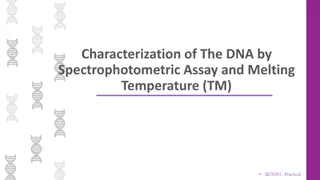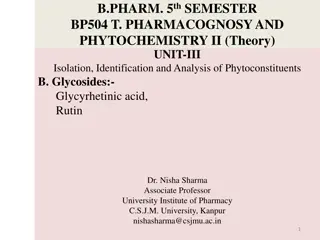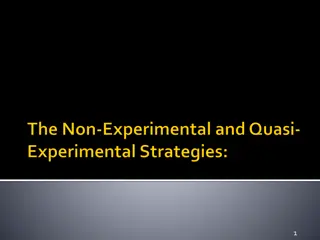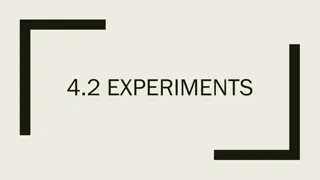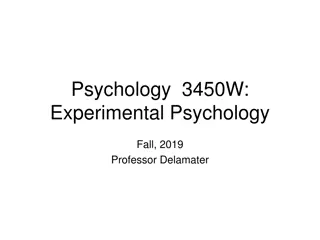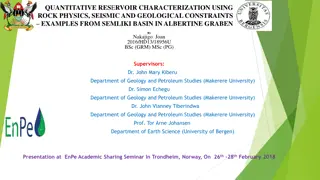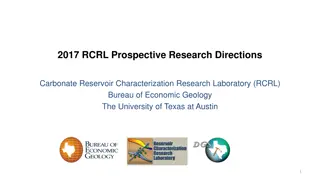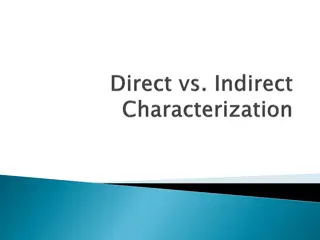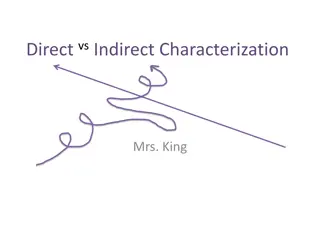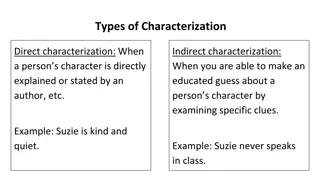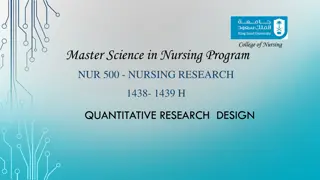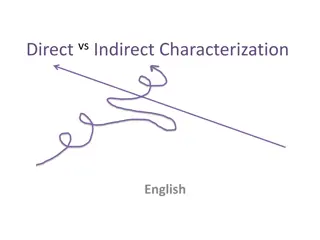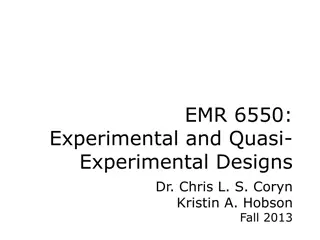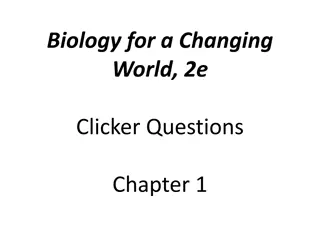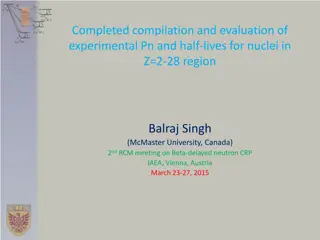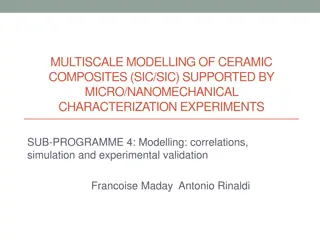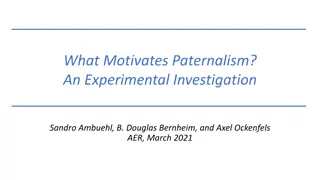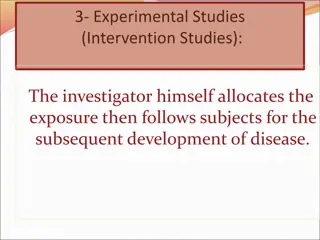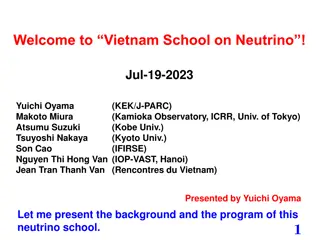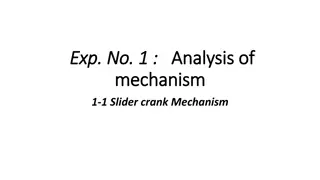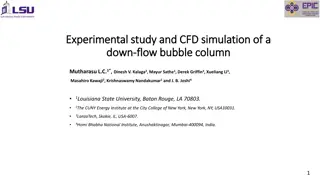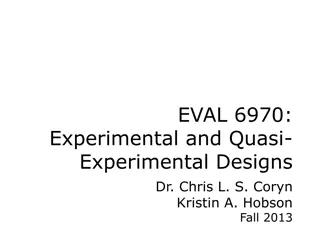Introduction to Experimental Economics by John Hey: A Comprehensive Overview
Explore the interconnected realms of Experimental Economics and Behavioral Economics through the insightful lectures of John Hey, an Emeritus Professor at the University of York. Discover the methodology of testing economic theories for validity and the practical applications of experimental economi
1 views • 58 slides
Insights on Experimental ASF Vaccines in Pig Studies
The research conducted by Prof. Jishu Shi and his team at Kansas State University delves into the safety and efficacy testing of experimental African Swine Fever (ASF) vaccines using pigs as the model. Various vaccines, including DNA vaccines and live attenuated viruses, were tested against differen
4 views • 13 slides
Comprehensive DNA Characterization Methods in Molecular Biology
Explore the various techniques involved in the characterization of DNA, including spectrophotometric assay, melting temperature determination, quantitative and qualitative analyses, DNA purity assessment, GC content calculation, and DNA denaturation processes. Learn how to determine DNA concentratio
0 views • 12 slides
Analyzing "The Most Dangerous Game" by Richard Connell
This analysis delves into the plot, conflict, and characterization in "The Most Dangerous Game" by Richard Connell. The story follows the intense rivalry between the protagonist, Rainsford, and the antagonist, Zaroff, on Ship-Trap Island. Through indirect characterization, Connell showcases Rainsfor
0 views • 17 slides
Isolation and Characterization of Glycosides: Glycyrrhetinic acid and Rutin
This study focuses on the isolation and analysis of phytoconstituents, mainly glycosides such as Glycyrrhetinic acid and Rutin. It explains the methods for extracting glycosides, purification techniques, and characterization using spectroscopy methods. The detailed procedures for isolating Glycyrrhe
1 views • 19 slides
Understanding Nonexperimental and Quasi-experimental Studies
Nonexperimental and quasi-experimental studies resemble experiments but lack random assignment, making them valuable for group comparisons without establishing causation. This type of research design looks at differences between groups that already exist, focusing on group differences rather than ca
1 views • 35 slides
Understanding Literary Terms and Characterization in Fiction
Explore essential literary terms such as setting, tone, mood, protagonist, antagonist, irony (verbal, situational, dramatic), characterization (direct and indirect), and types of characters (static, dynamic, flat, round). Enhance your comprehension of how authors craft stories with diverse character
0 views • 18 slides
Understanding Experiments in Research: Observation vs. Experimentation
Observation and experiments are two crucial methods in research. An observational study involves observing and measuring variables without influencing responses, while an experiment deliberately applies treatments to measure responses. Confounding variables can affect the results, and factors like e
0 views • 13 slides
Analyzing Character Inferences Through Direct and Indirect Characterization
Explore the process of making character inferences by analyzing direct and indirect characterization techniques used by authors. Understand how to interpret evidence, reason out claims, and validate your inferences through textual support.
0 views • 12 slides
Understanding Experimental Psychology: Designs and Control Issues in Research
This content delves into the basics of experimental research, focusing on different types of experimental designs and control issues. It covers between-group and within-group designs, discussing advantages and disadvantages, as well as methods for controlling for nonequivalence. The importance of ra
0 views • 26 slides
Integrated Reservoir Characterization in Semliki Basin, Albertine Graben
Quantitative reservoir characterization using rock physics, seismic, and geological constraints is crucial for hydrocarbon prospect evaluation. This study by Nakajigo Joan explores the integration of these disciplines in the Semliki Basin to improve reservoir property delineation and reduce uncertai
0 views • 24 slides
Understanding Probability: Experimental and Theoretical Concepts
Probability is the measure of the likelihood of an event happening, with experimental and theoretical probability being key concepts. Experimental probability involves determining probabilities through experience or experiments, while theoretical probability can be calculated without prior experienc
2 views • 23 slides
Optimizing Glycoprofiling Analytical Method for Therapeutic Proteins
Glycoproteins play a significant role in biopharmaceuticals, necessitating detailed characterization due to their structural heterogeneity from glycosylation. This study focuses on developing a robust and cost-effective characterization method using a Definitive Screening Design to optimize an HPAE-
0 views • 13 slides
Understanding Rhetoric and Characterization in Shakespearean Works
Delve into the realm of rhetoric, exploring the concepts of logos, pathos, and ethos alongside the art of persuasion through language. Uncover the nuances of blank verse in Shakespearean poetry and the significance of characterization in revealing the depths of characters in his plays.
7 views • 32 slides
RCRL Prospective Research Directions in Carbonate Reservoir Characterization
The RCRL group at the University of Texas at Austin specializes in research on carbonate reservoirs at various scales, from nanopores to basin architecture. They focus on developing predictive relationships and tools for reservoir characterization based on subsurface datasets and outcrop analogs. Th
1 views • 12 slides
Understanding Characterization Techniques in Literature
In literature, characterization is essential for creating realistic and relatable characters. Authors use direct and indirect techniques to reveal the personalities of their characters. Direct characterization involves straightforward description of traits, while indirect characterization relies on
0 views • 14 slides
Direct and Indirect Characterization in Literature
The concept of direct and indirect characterization in literature is explored through examples from popular books such as "Artemis Fowl: The Eternity Code" and "The True Confessions of Charlotte Doyle." Direct characterization involves explicit statements about a character's personality, while indir
0 views • 8 slides
Understanding Direct vs. Indirect Characterization in Storytelling
Characterization is key in storytelling to develop characters effectively. Direct characterization involves explicitly stating a character's traits, while indirect characterization reveals traits through actions, thoughts, and interactions. Examples illustrate the difference between the two methods,
0 views • 15 slides
Understanding Characterization in Literature
In literature, characterization plays a crucial role in developing characters. Direct characterization explicitly describes a character, while indirect characterization allows readers to infer traits through actions, thoughts, interactions, and appearance. Examples and analysis demonstrate how autho
0 views • 5 slides
Quiz Review on Scientific Method and Graphing
Explore a quiz review covering topics related to scientific method, graphing, and experimental design. Understand key concepts such as hypothesis, scientific law, theory, variables, and experimental control through detailed questions and images. Test your knowledge on laboratory safety, inferences,
0 views • 14 slides
Understanding Quantitative Research Designs in Nursing
Delve into the world of quantitative research in nursing, exploring different research designs and the concept of causality. Learn about experimental, quasi-experimental, and non-experimental designs, as well as the characteristics of experimental design like manipulation, control, and randomization
0 views • 22 slides
Understanding Direct vs Indirect Characterization in English Literature
Development of characters, known as characterization, is crucial in storytelling. There are two main ways to characterize: direct and indirect. Direct characterization involves explicitly stating the character's traits, while indirect characterization uses actions, thoughts, and interactions to reve
0 views • 15 slides
Understanding Characterization in Literature
Characterization in literature involves the process through which authors reveal the personalities of characters. There are two main types: direct and indirect. Direct characterization involves the author explicitly telling the audience about the character's traits, while indirect characterization r
0 views • 10 slides
Understanding Characterization in Literature
Exploring the differences between direct and indirect characterization in literature, this content explains how authors convey character traits through actions, dialogue, thoughts, and interactions. It provides examples and types of indirect characterization, with a focus on speech, thoughts, effect
0 views • 34 slides
Quasi-Experimental and Interrupted Time-Series Designs Overview
Explore the various quasi-experimental designs, control groups, pretests, and outcome patterns in research methodologies. Understand the implications of different outcome patterns on causal interpretation and validity threats in experimental studies.
0 views • 31 slides
Understanding Experimental Design in Biology
Explore key concepts in experimental design in biology through clicker questions focusing on hypotheses, variables, control groups, and experimental groups. Learn how scientists test hypotheses and analyze results to draw valid conclusions in biological studies.
0 views • 15 slides
Compilation and Evaluation of Experimental Data for Nuclei in Z=2-28 Region
Completed compilation and evaluation of experimental Pn and half-lives for nuclei in the Z=2-28 region, led by Balraj Singh at McMaster University. The work involved preparing lists of neutron-rich nuclides, identifying potential emitters, analyzing available experimental data for 1n, 2n, 3n, and 4n
0 views • 20 slides
Advances in Positron Annihilation Spectroscopy and Experimental Research at DLNP Science and Technology Council Dubna
Positron annihilation spectroscopy (PAS) is a powerful technique used to study material structure and defects. DLNP Science and Technology Council in Dubna has been focusing on developing experimental techniques with slow monochromatic positron beams, leading to advancements in defect characterizati
0 views • 6 slides
Understanding Characterization in Literature
Exploring the concept of characterization through the lens of Squeaky, a dynamic character from 8th grade ELA material. Analyzing direct and indirect characterization techniques and providing text evidence to support the characterization of Squeaky as a passionate, competitive, and intolerant charac
0 views • 23 slides
Advances in Protein Therapeutics Characterization Using LC/MS
This presentation by Steve Madden, MassHunter Software Product Manager at Agilent Technologies, highlights the tools and techniques for protein characterization using LC/MS. The agenda covers topics like intact proteins, peptides, PTMs, glycan profiling, and more, emphasizing the importance of sampl
0 views • 30 slides
Advances in Ceramic Composite Property Modeling and Experimental Characterization
European research focuses on advanced modeling of C/C, C/SiC, and SiC/SiC composites for aerospace and nuclear applications, with an emphasis on correlating simulations with experimental validation. Laboratories are progressing towards a multiscale approach, integrating micro/nanomechanical characte
0 views • 5 slides
What Motivates Paternalism? An Experimental Investigation
Centuries of normative debate on paternalism have resulted in its ubiquity in various aspects of society, from consumer protection to safety regulations. However, there is a scarcity of empirical studies on the motivations behind paternalistic interventions. This experimental investigation delves in
0 views • 12 slides
Understanding Experimental Studies: Intervention, Characteristics, and Measurements
Experimental studies involve the investigator assigning exposures and following subjects to observe disease development. Different types of experimental studies exist, such as preventive and therapeutic types, each with its limitations, including ethical concerns and challenges in recruiting subject
0 views • 13 slides
Understanding Research Methods and Data Analysis
This review covers topics such as experimental classification, the comparison of non-experimental and experimental research, software features like JMP and SPSS, outlier handling in data analysis, and levels of measurement in statistical analysis.
0 views • 13 slides
Vietnam Neutrino School Overview
Vietnam School on Neutrino is an annual event started in 2017 to promote experimental neutrino physics in Vietnam. Led by Prof. Jean Tran Thanh Van, the school focuses on lectures, software and hardware training, group works, and excursions. With a mix of students from various countries, the aim is
0 views • 7 slides
Analysis of Slider-Crank Mechanism and Experimental Data
Slider-crank mechanism analysis involves understanding the transformation of input motion into desired output motion. This mechanism consists of a crank, coupler, slider, and ground link, converting circular motion into linear motion. Experimental procedures involve setting crank angles and recordin
0 views • 6 slides
Experimental Study and CFD Simulation of a Down-flow Bubble Column
This study and simulation focus on the experimental setup, measurement techniques, and results of a down-flow bubble column. It explores novel features such as inverted bubbly flow, micro-bubble generation, and gas injection. Detailed analysis includes axial and radial variations of volumetric gas h
0 views • 25 slides
Understanding Experimental and Quasi-Experimental Designs
Explore the foundations of experimental and quasi-experimental designs, delving into causal relationships, counterfactual reasoning, and the importance of validating statistical and internal conclusions. Learn about causes, effects, and the complexity of determining causation in research. Discover R
0 views • 46 slides
Understanding Probability: Learning Outcomes and Examples
This content delves into the study of probability, covering topics such as representing probabilities of simple and compound events, calculating relative frequencies, multi-step chance experiments, theoretical and experimental probabilities. It explains concepts like chance experiments, sample space
0 views • 31 slides
Understanding Experimental Studies in Epidemiology
Epidemiological studies and experimental studies play vital roles in understanding cause-and-effect relationships in research. Experimental studies involve manipulating independent variables and measuring dependent variables, with categories such as true experimental, quasi-experimental, and pre-exp
0 views • 22 slides


